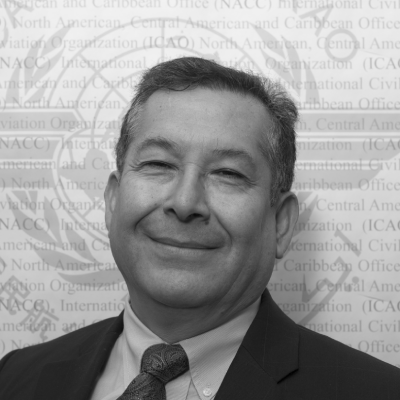Gestión y regulación de infraestructura aeroportuaria sostenible
You can earn this badge if you successfully complete the course.
ABOUT THIS COURSE
Fecha límite de registro: 1 de noviembre de 2024
El transporte aéreo en América Latina y el Caribe (LAC) contribuye directa o indirectamente US$156 millardos al PIB de la región y soporta más de 7 millones de empleos. Asimismo, se transportan más de 400 millones de pasajeros al año, con una proyección de crecimiento de 4,7% anual para los próximos diez años. Sin embargo, la región aún enfrenta retos como las políticas aerocomerciales relativamente restrictivas, que limitan la competencia; el incumplimiento de los estándares internacionales de seguridad y seguridad operacional; y una infraestructura aeroportuaria inadecuada para atender la demanda creciente. Varios países han promovido las concesiones aeroportuarias como una estrategia para superar este último desafío, pero las experiencias no siempre han sido satisfactorias. Además, muchos de los países aún no poseen un marco institucional adecuado a las recomendaciones de la OACI, que separe claramente las funciones de autoridades y operadores, y que garantice el desarrollo de políticas aéreas efectivas.
Este curso fue desarrollado con el propósito de:
- Crear capacidades locales para el fortalecimiento de la gestión y regulación de la aviación civil en el sector público desde una perspectiva estratégica, que considere las dinámicas de los nuevos retos que enfrenta la industria.
- Apoyar a los países de América Latina y el Caribe en el fortalecimiento de competencias de las personas y en el desarrollo de reformas institucionales que mejoren las capacidades de los organismos y agencias que actúan y regulan en materia de aviación civil.
El BID ha definido como una de sus principales estrategias crear capacidades locales para mayor efectividad del sector público. El marco conceptual para la aviación del BID define como uno de los compromisos del Banco el de “apoyar a los países en el fortalecimiento y en reformas institucionales que mejoren las capacidades de las agencias de aviación civil”. Eso ayuda a los países a buscar soluciones para los nuevos retos de la aviación civil.
AUDIENCE OF THE COURSE
• Personal de la aviación civil que desempeñe actividades técnicas, de gestión o dirección estratégica en áreas de regulación y operación aeroportuaria, seguridad y seguridad operacional, contratación y supervisión de contratos
• Profesionales de organismos públicos encargados de definir políticas y supervisar su ejecución en la aviación civil en América Latina y el Caribe
• Especialistas del BID que deseen comprender mejor el subsector aeroportuario, para un abordaje más eficiente con el cliente
El curso no tiene prerrequisitos de grado académico. Solo se requiere que tenga conocimientos generales de la gestión de aeropuertos, así como habilidades de lectura y escritura avanzada, como herramientas de apoyo que favorezcan su experiencia de aprendizaje en línea.
Con relación a los requisitos técnicos mínimos se espera que el participante:
• Use correctamente uno o varios de los navegadores de Internet. Recomendamos el navegador de Google Chrome para acceder a los contenidos del curso.
• Conozca el software de Adobe Acrobat o similar para visualización y descarga de documentos PDF.
• Disponga y maneje correctamente una cuenta de correo electrónico personal para recibir notificaciones y estar informado/a sobre el curso.
COST & REIMBURSEMENTS
COURSE STRUCTURE
RELATED PROGRAM
AUTHORS AND COORDINATORS

Jiménez Pérez, Édgar
Especialista en Sistemas de Transporte

Café, Eduardo
Coordinador Académico

Fioravanti, Reinaldo
Especialista Lider en Transporte del BID

Suárez-Aleman, Ancor
Especialista en Asociaciones Público Privadas del BID

Calderón Rojas, Jaime
Especialista en Aerodrómos de la OACI

Sandoval, Diana
Consultora en Accesibilidad Inclusiva

Pedraza Sanchez, Lauramaria
Analista de Transporte del BID

Fermín Tejada, Adonay
Junta de Aviación Civil Repúbica Dominicana

Medina Montandón, Kerkdenny
Junta de Aviación Civil República Dominicana

Furtado de Mendonça, Simone Rezende
Gerente de la parte tierra del Aeropuerto Internacional RIOgaleao

Ricover, Andy
Especialista de transporte aéreo
AUTHORS AND COORDINATORS

Jiménez Pérez, Édgar
Especialista en Sistemas de Transporte
